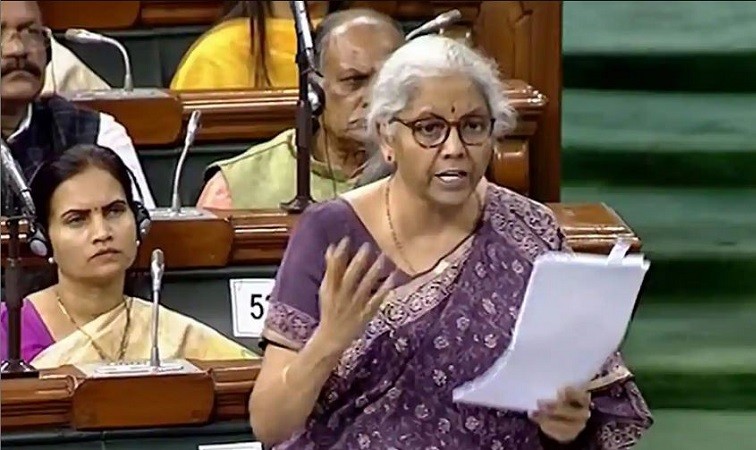
NEW DELHI: The Finance Bill, 2023 was approved in the Lok Sabha on Friday, March 24, amidst sloganeering by opposition members for setting up a Joint Par;liamentratu Committee in the Adani-Hindenburg issue. This comes a day after the demand for grants was passed in Parliament. The Finance Bill 2023, gives effect to the financial proposals of the union government for the financial year 2023-24 to be taken into consideration.
Debt mutual funds have been stripped of the long-term tax benefit if they invest less than 35 percent of their assets in equities. Such mutual funds will attract short-term capital gains tax.
Earlier on Thursday, the Lok Sabha on passed demands for grants authorising expenditure of about Rs 45 lakh crore for 2023-24. Despite protests from opposition members over their demand for a JPC investigation into the Adani issue, the proposal was approved by voice vote.
The two Houses of Parliament have been seeing adjournments over the recurrent logjam. While the BJP has been pressing Congress leader Rahul Gandhi to retract his comments made in the UK, the opposition has been calling for a Joint Parliamentary Committee investigation into the Hindenburg-Adani controversy.
See below for changes made to The Finance Bill 2023:
1. Indexation benefits for mutual funds with less than 35% of AUM in domestic equities will be lost, and they will be subject to short-term capital gains tax.
2. Expansion of tax incentives for offshore banking entities working in GIFT city, including a 100% income tax deduction for ten years.
3. A 20% tax was added to foreign (non-resident) corporations' royalties and technical fees, up from 10%.
4. The tax rate on non-par savings insurance products remains the same at 5 lakh.
5. Despite representation, there is no change in the taxation of REITS/InviTs (REITs' revenue will be taxed as "income from other sources," not as capital gains).
In her budget, Sitharaman also pledged to narrow the fiscal deficit target to 5.9 percent of GDP in FY24 versus 6.4 percent in FY23. Ten-year yields climbed as much as 6 basis points initially, before swinging lower, by as much as 6 basis points to 7.28 percent
The second half of the budget session began on March 13 and will commence on April 6.
The Finance Minister presented the Union Budget on February 1.
FM Nirmala Sitharman to move Finance Bill 2023 today
FM to meet PSB CEOs amid global banking crisis
FM to table supplementary grant for Jammu Kashmir in Rajya Sabha today